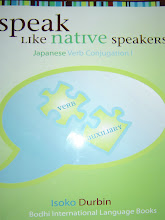オレオレさぎ、アメリカじょうりく!
oreore sagi, amerika jyouriku!
Yesterday, I was watching the morning news "Today" and saw "Grandparents Scam." It is a scam targeted on senior citizens to transfer money to for example "Western Union." It is like this. A young man calls an old lady:
"Hi, grandma!"
"Who's this?"
"Your favorite grandson."
"David?"
"Yes!"
Of course, he is not "David," but he just says "Yes!" And he asks to transfer money to his Western Union account because he got a trouble in Canada. He says, "don't call my parents because I don't want them to worry." The old lady wants to help her favorite grandson "David," so sends her money. This is happening in the United States. You know what, I think this is originally from Japan! This is called オレオレ詐欺 "'It's me! It's me' Scam" or 振り込め詐欺 (furikome sagi) "Transfer money scam" in Japan.
I remember that the Japanese class instructer in my American college talked about this in her class. (At that time, I was observing and helping her Japanese class. Of course I did not enroll a Japanese class!) She sounded like mocking the Japanese people because they actually sent money. She said "Japanese are so naive!" I really hated what she said. This is targeted on old people who cannot tell the difference on the phone. I knew this scam because I was in Japan when it was a hot news there. And you know what, this is not only Japanese people. American people do it too. And I believe they actually thought it was their grandson. You cannot make a fun of such victims. The next victim chould be your grandmother who wants to rescue you!
Anyway, I will explain the words.
オレ is "me" used by men. It is a lot more casual than 私 (watashi). 詐欺 (sagi) is a scam. 上陸 is "to land."
にほんブログ村

